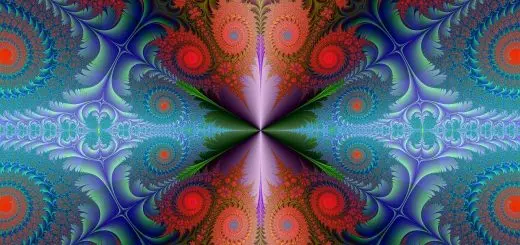Understanding the Afterlife in Yoruba Religion: Orun

Looking for more amazing products? Check out our online store and explore our collection here! Happy shopping!
Before diving in, please note: This post is for informational purposes only. If you’d like to know more about how we approach topics, feel free to check out our friendly Disclaimer Page.
Hey there, amazing readers! 
We’re committed to delivering quality posts, and your support (even just sticking around despite the ads) means everything to us. So, bear with us, and thanks for helping us keep the good vibes rolling. Now, on to the fun stuff!
TRANSLATE BUTTON AT THE END OF THE ARTICLE
Introduction to Yoruba Religion
Yoruba religion, originating from the Yoruba people in Nigeria and Benin, is a complex and rich spiritual system that encompasses a vast array of beliefs, rituals, and deities.
Central to the Yoruba belief system is the idea of a cyclical existence, where life and death are interconnected in a continuous cycle.
The concept of the afterlife, known as Orun, plays a pivotal role in Yoruba religious beliefs and practices.
Understanding the intricacies of Orun provides insight into how the Yoruba view existence beyond the physical realm.
Beliefs about the Afterlife
In Yoruba religion, the afterlife is not seen as a final destination but rather as another phase of existence.
The journey of the soul does not end with physical death but continues into Orun, the spiritual realm where the ancestors reside.
Orun is believed to be a place of peace and harmony, where the spirits of the deceased are reunited with their ancestors and can continue to influence the lives of the living.
This belief in the continuity of existence beyond death shapes many aspects of Yoruba religious practices and cultural traditions.
Concept of Orun in Yoruba Religion
Orun is the Yoruba term for the afterlife or spiritual realm where the souls of the deceased reside.
It is believed to be a parallel world to the physical realm, existing in a different plane of existence.
Orun is not solely a place of rest for the deceased but is also seen as a realm of spiritual growth and enlightenment.
The concept of Orun is deeply intertwined with Yoruba cosmology and the belief in the interconnectedness of all beings in the universe.
The Journey of the Soul
According to Yoruba beliefs, the journey of the soul begins at birth and continues into the afterlife.
When a person passes away, their soul embarks on a journey to Orun, guided by spiritual forces and ancestors.
The journey of the soul is seen as a transition from the physical world to the spiritual realm, where the soul can rest and gain wisdom before potentially returning to the physical world through reincarnation.
This cyclical nature of existence highlights the interconnectedness of life, death, and rebirth in Yoruba cosmology.
Orun as a Spiritual Realm
Orun is not just a resting place for the deceased but is also considered a spiritual realm where the ancestors and spiritual forces reside.
It is believed to be a place of higher consciousness and spiritual growth, where the souls of the deceased can continue to evolve and learn.
Orun is seen as a realm of possibilities, where the spirits of the deceased can influence the physical world and communicate with the living through various means.
Understanding the significance of Orun is essential in comprehending the role of ancestors in Yoruba religious practices.
The Role of Ancestors in Orun
Ancestors play a crucial role in Yoruba religion, serving as intermediaries between the living and the spiritual realm of Orun.
Ancestors are revered and honored through rituals and offerings, as they are believed to have the power to influence the lives of their descendants.
The ancestors are seen as guardians and protectors, guiding the living on their spiritual journey and offering wisdom and support.
Communication with ancestors is essential in Yoruba religious practices, as they are believed to have the ability to intercede on behalf of the living with spiritual forces.
Communication with the Deceased
In Yoruba religion, communication with the deceased is facilitated through various rituals and practices.
Offerings of food, drink, and other items are made to honor the ancestors and establish a connection with the spiritual realm.
Divination and trance ceremonies are also used to communicate with the deceased and seek guidance from the ancestors.
Through these practices, the living can receive messages from the deceased and gain insight into spiritual matters.
Communication with the deceased is a central aspect of Yoruba religious practices, emphasizing the importance of maintaining a relationship with the spiritual realm.
Rituals for the Departed
Rituals for the departed are an integral part of Yoruba religious practices, aimed at honoring the deceased and ensuring their journey to Orun is peaceful and harmonious.
Funeral rites, including burial ceremonies and mourning rituals, are performed to send off the deceased with respect and dignity.
Offerings of food, drink, and other items are made to sustain the spirits of the deceased on their journey to the afterlife.
Ancestral veneration ceremonies are also conducted to honor the ancestors and seek their blessings and protection.
These rituals serve to maintain the connection between the living and the deceased, ensuring the continuity of existence in Yoruba beliefs.
Reincarnation in Yoruba Beliefs
Reincarnation is a fundamental aspect of Yoruba beliefs, where the soul of the deceased can return to the physical world in a new form.
The concept of reincarnation is based on the idea that the soul is eternal and can undergo multiple lifetimes to fulfill its spiritual journey.
Reincarnation is seen as a way for the soul to learn important lessons and evolve spiritually.
Through the process of reincarnation, the soul can continue its growth and development across multiple lifetimes, ultimately reaching a state of higher consciousness.
Reincarnation is viewed as a natural part of the cycle of life, death, and rebirth in Yoruba cosmology.
Orun and the Balance of Life
Orun plays a significant role in maintaining the balance of life in Yoruba beliefs.
The spiritual realm of Orun is interconnected with the physical world, influencing the course of events and the well-being of individuals.
The relationship between Orun and the physical realm is symbiotic, with the spiritual forces in Orun guiding and protecting the living.
By honoring the ancestors and communicating with the deceased, the living can maintain harmony and balance in their lives.
Understanding the role of Orun in the balance of life is essential in navigating the complexities of Yoruba religious beliefs and practices.
The Influence of Orun in Daily Life
The influence of Orun extends beyond the realm of the afterlife and into the daily lives of the Yoruba people.
Orun is believed to be a source of wisdom, guidance, and protection for the living, providing a spiritual foundation for individuals to navigate life’s challenges.
By honoring the ancestors and communicating with the spiritual forces in Orun, the Yoruba can seek guidance and support in their daily endeavors.
The influence of Orun can be felt in various aspects of Yoruba culture, from family traditions to community ceremonies, highlighting the interconnectedness of the spiritual and physical realms in Yoruba beliefs.
Symbolism in Yoruba Afterlife beliefs
Symbolism plays a crucial role in Yoruba afterlife beliefs, with various objects, colors, and rituals holding deep spiritual significance.
White is often associated with purity and spiritual enlightenment in Yoruba culture, representing the connection between the physical and spiritual realms.
Offerings of food and drink symbolize the sustenance of the deceased spirits on their journey to Orun, while divination tools such as cowrie shells are used to communicate with the ancestors.
Symbolism in Yoruba afterlife beliefs serves as a way to communicate with the spiritual realm and convey important messages and meanings through ritual and ceremony.
Conclusion
In conclusion, understanding the afterlife in Yoruba religion, particularly the concept of Orun, provides valuable insights into the intricate beliefs and practices of the Yoruba people.
The journey of the soul, the role of ancestors, communication with the deceased, and the influence of Orun in daily life all contribute to the rich tapestry of Yoruba religious traditions.
By exploring the complexities of Orun and its significance in maintaining the balance of life, we can gain a deeper appreciation for the interconnectedness of the spiritual and physical realms in Yoruba cosmology.
Through rituals, symbolism, and a deep reverence for the ancestors, the Yoruba continue to honor their cultural heritage and spiritual traditions in a way that is both timeless and deeply meaningful.

The Enlightenment Journey is a remarkable collection of writings authored by a distinguished group of experts in the fields of spirituality, new age, and esoteric knowledge.
This anthology features a diverse assembly of well-experienced authors who bring their profound insights and credible perspectives to the forefront.
Each contributor possesses a wealth of knowledge and wisdom, making them authorities in their respective domains.
Together, they offer readers a transformative journey into the realms of spiritual growth, self-discovery, and esoteric enlightenment.
The Enlightenment Journey is a testament to the collective expertise of these luminaries, providing readers with a rich tapestry of ideas and information to illuminate their spiritual path.
Our Diverse Expertise
While our primary focus is on spirituality and esotericism, we are equally passionate about exploring a wide range of other topics and niches 

To ensure we provide the most accurate and valuable insights, we collaborate with trusted experts in their respective domains 
Our blog originally focused on spirituality and metaphysics, but we’ve since expanded to cover a wide range of niches. Don’t worry—we continue to publish a lot of articles on spirituality! Frequently visit our blog to explore our diverse content and stay tuned for more insightful reads.
Hey there, amazing reader! 
Check out our store here and take a peek at some of our featured products below! Thanks for being awesome!










